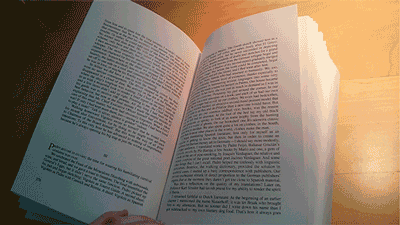This series includes some of my favorite images from the #weneeddiversebooks campaign, author/blogger posts, and my own insights (obvi).
In Part I of the series I discuss why I value literary diversity and what the conversation means to me as author, reader, and, you know, human being.
Warning: ink (or…pixels?) will be spilled.
We need diversity!
…cried the white, hetero, twenty-something privileged woman.
Chuck Wendig has a brilliant post about why a white male author actively joins the diversity conversation; go read it, if you haven’t.
I find myself in a similar position. I’m not joining this conversation because I am marginalized. Far from it. As Chuck describes,
…I wanna talk to more people. Not at more people. But as part of a two-way, we’re-all-at-the-same-table conversation. Even when I’m getting it wrong. And it always strikes me as ironic that science-fiction (HEY LOOK THE FUTURE) and fantasy (WE CAN MAKE UP ANYTHING WE WANT) are so frequently mired in the narrow Heteronormative White Dude paradigm. You can do anything you want in these worlds and yet somehow they end up always looking like the samey-samey worlds that came before them.
As a writer, I can be writing better characters – because to me, writing better characters encompasses crafting people who represent a variety of experiences and demographics. I don’t want to marginalize the conversation by saying I should write “more diverse characters.” That limits my range and the character’s range, where the character is unique because of his or her sexuality, color, or creed (Katie at Doing Dewey Decimal warns against this practice as well). I want to strive to go beyond that.
I want to be a storyteller. I want to write with a thousand voices.
I also want to acknowledge that I am not coming to this conversation as someone who feels marginalized in mainstream publishing.
I don’t feel the “white woman” demographic is missing in YA or general fiction. I don’t perceive underrepresentation: those voices aren’t missing from the pages.

Or, to put it differently (and bluntly): I think it would be easy for a white girl or white woman to find a role model in a book.
I was lucky to be encouraged to read, to fall in love with books, to have parents with disposable income to buy any book I wanted. I have always been an avid reader. I got in trouble by missing instructions for class assignments, failing to respond during attendance, or being tucked away in the reading corner when I should have been taking a spelling quiz.
I was the model student, unless you put a book in my hands. I met so many characters. I saw so many worlds. I escaped – not because I needed to, but because it was fun. It was a privilege afforded to me.
I was lucky to be in advanced, non-traditional Reading, Language Arts, and English courses throughout K-12. We read some of the obligatory classics – Shakespeare and The Scarlet Letter and Cyrano de Bergerac. We also read Life of Pi (before it was a movie), In the House of the Spirits, One Hundred Years of Solitude, Beloved, Things Fall Apart, Siddhartha, Like Water for Chocolate, Their Eyes Were Watching God, and In the Time of the Butterflies.
Through books, I got to see a sliver of the world (and imagined worlds, too). I am an only child, but I’ve always had books to give me a little taste of what it might be like to be someone other than myself.
To me, this is the real crux of diversity: it offers another window into a life experience. It means we see realities that aren’t our own – including problems we may never have to face. If I want to read about a privileged white girl lamenting that her parents don’t understand, and school is hard, and her crush doesn’t like her, I can just go back and read my LiveJournal archive.
I worry that without exposure to diverse experiences and populations, it’s too easy to take life at face value. Diverse characters question my view of the human experience. If I think everyone lives like me or faces the same obstacles as I do, I would have a narrow, limited view of life. Books show me a worldview other than my own, and make me think about life outside my little slice of the universe.
Tune in for Part II, a lofty analysis of “the other,” culling the literary herd, and censorship.
Join the conversation and leave a comment below!
Follow me on
Twitter | Google+ | Goodreads | Instagram | Pinterest





Oh, such a great post! I agree completely. What we need aren’t just token diverse characters, but books which share diverse life experiences both so everyone can find their heroes and so us white girls can experience what it’s like to be someone else. I feel like you took everything I wanted to say and said it much more clearly. Really awesome 🙂
LikeLike
Thank you so much! I’m glad you liked it. I’m posting Part II today, which is going to be more social (vs. personal) commentary.
LikeLike
For me, the beauty of books lies in the fact that other personalities, often unlike your own, are invited to inhabit your consciousness for a time – as you say “I met so many characters. I saw so many worlds.” This process seems to me to be an exercise in empathy. And anything that’s good and worthwhile about our species always resides in our capacity for empathy.
LikeLike
I totally agree. I explored this a little more in Part II, which just went live. I like your use of “empathy” though – wish I’d specifically mentioned that in my post, though I danced around it 🙂
LikeLike
“I danced around empathy” – sounds like the opening line of a poem 🙂
LikeLike
You’re right! 🙂
LikeLike